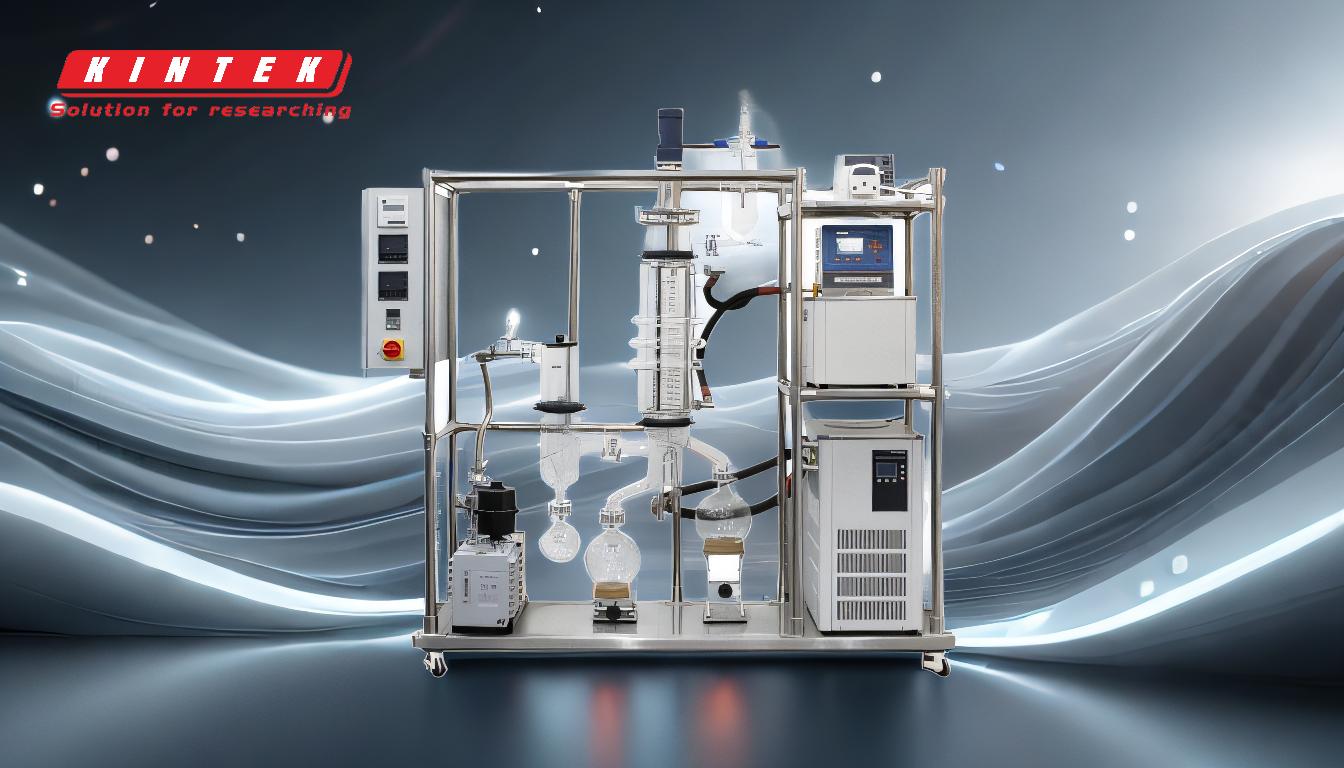Distillation apparatus is a versatile tool used across various industries and applications to separate and purify substances based on differences in their volatility. Two primary uses of distillation apparatus include water purification and alcohol production. Water purification involves processes like desalination and the creation of distilled water for industrial and domestic use, while alcohol production relies on distillation to increase the alcohol content and purity of fermented beverages. These applications highlight the importance of distillation in ensuring safety, quality, and efficiency in both everyday and industrial contexts.
Key Points Explained:

-
Water Purification:
- Desalination: Distillation apparatus is used to convert seawater into potable drinking water by evaporating the water and condensing the vapor, leaving behind salts and impurities. This is particularly vital in regions with limited freshwater resources.
-
Distilled Water Production: Distilled water, free from contaminants and minerals, is essential for specific applications such as:
- Lead-Acid Batteries: Distilled water is used to maintain the electrolyte levels in batteries, ensuring optimal performance and longevity.
- Humidifiers: Low-volume humidifiers require distilled water to prevent mineral buildup and ensure clean mist output.
- Laboratory Use: Distilled water is used in chemical labs to prepare solutions and conduct experiments where purity is critical.
-
Alcohol Production:
- Fermented Beverage Purification: Distillation is a key step in producing alcoholic beverages like whiskey, vodka, and rum. It increases the alcohol content by separating ethanol from the fermented mixture, which typically contains water, yeast, and other impurities.
- Short-Path Distillation: This method is particularly effective for purifying and concentrating alcohol, as well as separating volatile compounds like terpenoids and cannabinoids in cannabis oil. It ensures high purity and preserves the desired flavors and aromas in beverages.
- Industrial Scale: Distillation is used on a large scale to purify liquid products obtained from chemical synthesis, ensuring consistency and quality in the final product.
-
Additional Context and Importance:
- Distillation apparatus is also used in other applications, such as the production of essential oils, perfumes, and food flavorings, as well as oil stabilization and air separation. However, water purification and alcohol production are two of the most common and impactful uses.
- The choice of distillation method (e.g., fractional, molecular, or short-path) depends on the specific requirements of the process, such as the boiling points of the components and the need for high purity or preservation of natural properties.
By understanding these key uses, equipment and consumable purchasers can better evaluate the type of distillation apparatus needed for their specific applications, ensuring efficiency, cost-effectiveness, and high-quality results.
Summary Table:
| Application | Key Uses |
|---|---|
| Water Purification | - Desalination: Converts seawater to potable water. |
| - Distilled Water Production: Used in batteries, humidifiers, and labs. | |
| Alcohol Production | - Fermented Beverage Purification: Increases alcohol content in beverages. |
| - Short-Path Distillation: Ensures high purity and preserves flavors. | |
| - Industrial Scale: Purifies liquid products for consistency and quality. |
Looking for the right distillation apparatus for your needs? Contact our experts today to find the perfect solution!










